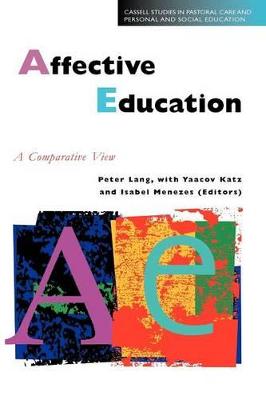Cassell Studies in Pastoral Care & Personal & Social Education
2 total works
Teachers' concerns for the personal, social, emotional and moral well-being and welfare of their pupils is international. This book provides comparative data on recent developments in a number of countries. There are chapters on: guidance and counselling programmes in Canada, USA and New Zealand; the role of the class teacher in Denmark; government initiatives in Singapore; and contrasting approaches in Australia. Skills-based guidance programmes are also considered.
Affective education can be defined as that part of the educational process which concerns itself with the attitudes, feelings, beliefs and emotions of students. Central to the concept is the acknowledgement that student's feelings about themselves as learners and about their academic subjects can be at least as influential as their actual ability. This collection features the work of contributors from countries such as Belgium, Denmark, Russia, Germany, Israel, Spain and the UK. It shows how the practical approach to affective education varies from nation to nation. By analyzing the underlying theory, this text sets out to bring the different approaches closer together, to enable teachers across the continent to work towards a positive common ground.

